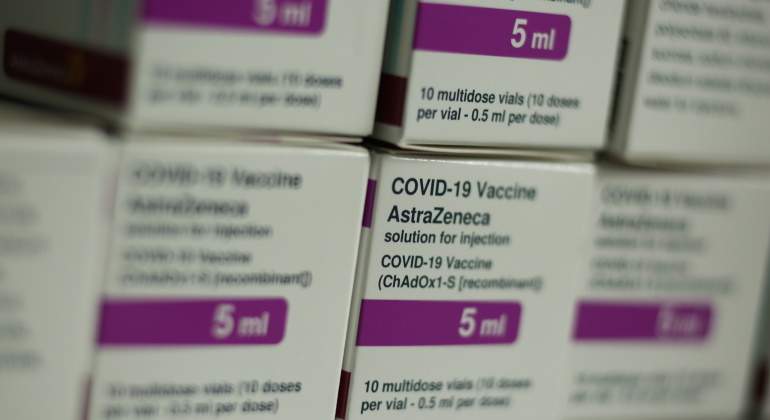Vaccination is the best protection against Covid-19, and the evidence for it is overwhelming. Although protection against infection or transmission is not guaranteed – especially with the Delta variant on the rise – getting vaccinated substantially reduces the risk of severe illness, hospitalization and death from the coronavirus.
Therefore, widespread vaccination is the key for responsible governments to relax public health restrictions, thus allowing the economic recovery to continue. But this seems increasingly unattainable.
Researchers estimate that 70% -85% of the population must be vaccinated (or immune to Covid-19) to end the pandemic. Yet even in Israel, which was leading the world in its vaccination campaign in early 2021, the proportion of the population that has been vaccinated has stagnated at just over 60%. In the United States, only half the population is protected, and vaccination rates have plummeted from 3.2 million daily doses in April to less than 700,000 daily doses in early August.
The case of the US is especially interesting, because the country’s average hides large differences between socioeconomic groups and between states. While more than 63% of Massachusetts and Maine residents are fully vaccinated, only 34% of Mississippi and Alabama residents are. Between cities and counties, the disparities are even greater.
This is less a problem of access than of acceptance. It has been widely observed that, at least in the United States, willingness to get vaccinated is correlated with political affiliation. Polls show that only about 54% of Republican adults have been vaccinated, compared to 86% of Democrats. In the counties that voted for Donald Trump, a Republican, in the 2020 presidential election, vaccination rates are more than 10 percentage points lower than in the counties that voted for Joe Biden, a Democrat.
But while the statistical link between political affiliation and vaccine indecision is strong, the correlation does not equal causation. Plus, anti-vaccine sentiment is nothing new – the NoVax movement existed long before the Covid-19 pandemic. The question, therefore, is whether people reject the vaccine simply because of their political beliefs, or whether those political beliefs and their stance on the vaccine reflect other, deeper factors.
A look at the broader attitudes of people towards science and trust in the establishment (scientific and otherwise) could help us find the answer. A useful indicator is acceptance of evolution. Polls have repeatedly revealed that a substantial minority of Americans reject the scientific consensus that human beings are the product of a long process of natural selection.
The belief in evolution is strongly linked to the acceptance of vaccination. In fact, the best indicator of vaccine acceptance in every US state is the percentage of the population that believes that the human race has always existed.
Interestingly, religious beliefs do not appear to be decisive in this case. The relationship between vaccine consumption and the prevalence of the belief that divine intervention directed evolution is quite weak. Furthermore, political partisanship, as measured by voting patterns in the 2020 presidential elections, loses its predictive power on vaccine acceptance after accounting for belief in evolution.
The implication is that attitudes toward vaccination are not rooted in partisan loyalty, but in a latent distrust of science. This may reflect the functioning of democracy in general. As Christopher H. Achen and Larry M. Bartels argue in their 2017 book, Democracy for Realists: Why Elections Do Not Produce Responsive Government , it is not that political parties present their programs and rational voters choose which to support, but rather that political parties present their programs. parties represent existing identity groups.
In the United States, the Republican Party has positioned itself in a way that captures the segment of Americans who do not accept science if its results clash with their worldview. These types of people do not believe in evolution (approximately a quarter of the population, on average) and tend to reject Covid-19 vaccines. But the Republican Party is not necessarily responsible for those positions. So contrary to Jeffrey Frankel’s recent assertion, America’s Republicans cannot be said to be “killing their voters.”
In a sense, this is bad news. If people’s decision not to get vaccinated is based on fundamental beliefs, it will be much more difficult to change than if it is based on political partisanship or health concerns. Spreading more factual information – more studies, more statistics – will not change things. After all, evolution has been taught in schools for generations.
Financial incentives, such as sweepstakes, might convince some of the skeptics. But there is likely to remain a significant community of staunch anti-vaccines, and not just in the United States.
Mandatory vaccination elsewhere, such as France, is also facing strong resistance. As the Delta variant fuels new Covid-19 outbreaks, governments in countries with a strong anti-vaccine movement are left with few good options.

